Navigating Data Protection in the G20 Digital Economy Agenda
Join us for a G20 Side-Event, where we'll explore the critical role of data protection in shaping the digital economy, addressing themes such as digital literacy, regulatory experimentation, and ethical AI development to foster innovation while respecting human rights.
About
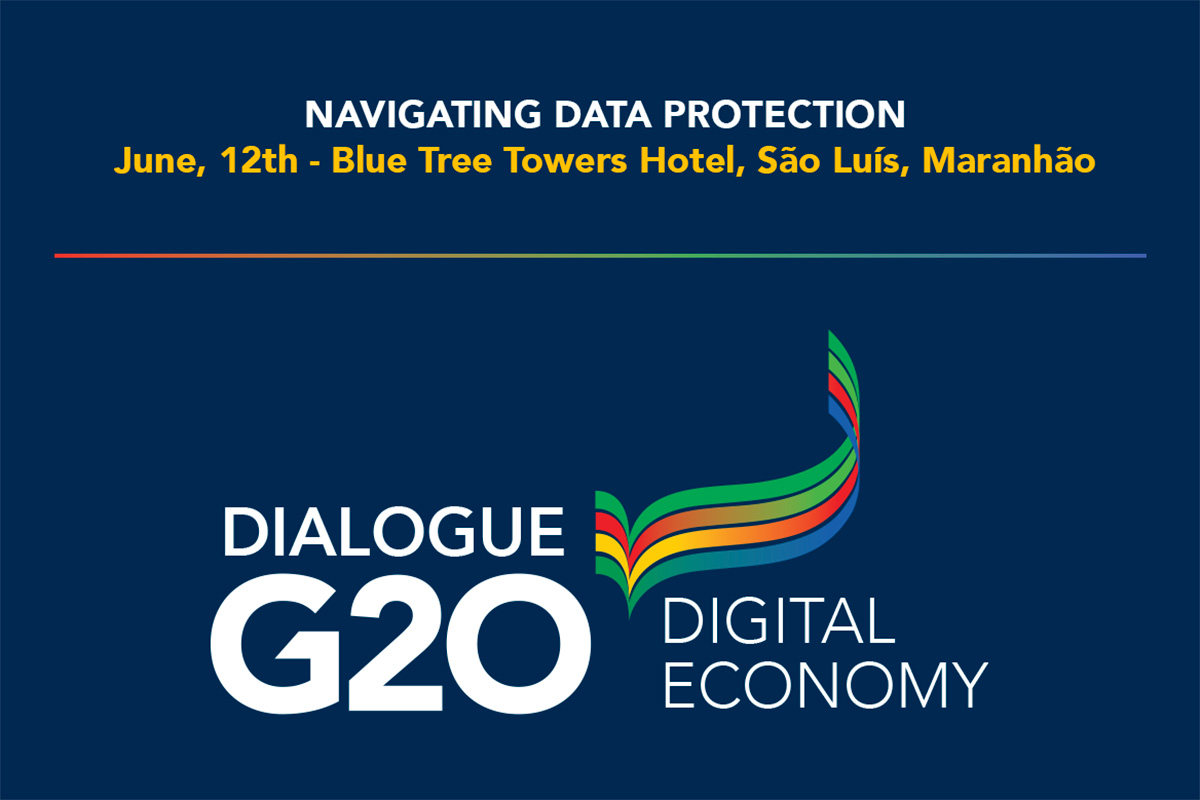
Within the context of the digital economy, data protection agenda is a cross-cutting theme. In 2024, Brazil will be hosting the G20, and the key topics chosen for discussion during its tenure as the "pro tempore" Presidency, particularly within the Digital Economy Working Group (DEWG), are (i) "Digital Inclusion, Universal and Meaningful Connectivity", (ii) "Digital Government: Building a Trustworthy and Inclusive Digital Public Infrastructure" (iii) "Information Integrity and Trust in the Digital Environment", and (iv) "Artificial Intelligence for Inclusive Sustainable Development and Inequalities Reduction".
Data lies at the heart of these themes, forming the backbone of meaningful connectivity, digital public infrastructure, information integrity, and AI innovation. Consequently, data protection emerges as a fundamental right, essential for fostering inclusion and ensuring privacy in the digital realm. This side-event underscores the crucial link between data protection, Media and Information Literacy (MIL), and building user trust, emphasizing the need for awareness and education to combat misinformation.
Moreover, the event explores the emergence of data infrastructures like data spaces, which unify the data market while upholding standards of privacy and data protection. This integration of data protection with Digital Public Infrastructure (DPI) aligns with the broader objective of fostering public service optimization while respecting human rights.
Ethical development takes center stage as well, emphasizing the importance of ensuring that digital public infrastructure and AI systems operate in alignment with human values and rights. Regulatory experimentation tools like regulatory sandboxes and innovation hubs offer avenues for promoting responsible innovation, navigating complex regulatory landscapes, and fostering collaboration among stakeholders.
Through in-depth discussions, the event aims to address global dialogues on data protection challenges and steer innovation towards responsible outcomes. By fostering a collaborative approach, stakeholders can work together to ensure that data protection contributes positively to global advancement in the digital economy. Join us in shaping a future where innovation is aligned with societal values and individual rights, creating a digital environment that is secure, inclusive, and trustworthy.
When:
June, 12th
Where:
Blue Tree Towers Hotel, São Luís, Maranhão, Brazil
Format:
The conference is scheduled for one afternoon during the G20 DEWG meeting.
The meeting will take place in the G20 DEWG’s Plenary Room.
Wednesday, June 12th, from 2:30 pm to 05:30 pm – closed meetings with G20 delegates and invited partners from G20 engagement groups (T20, C20 and others).
Goals:
Enhance Understanding: Foster a deeper understanding of the critical role of data protection within the digital economy, emphasizing its intersection with themes such as digital inclusion, digital government, and ethical AI development.
Facilitate Dialogue: Encourage -collaborative dialogue among stakeholders to tackle worldwide data protection challenges, particularly in navigating intricate regulatory frameworks and advancing responsible innovation.
Build Consensus: Cultivate a mutual understanding and collaborative approach among participants towards steering innovation in the digital realm towards outcomes that uphold individual rights and societal values.
Public:
Due to limited space, “Navigating Data Protection on the G20 Digital Economy Agenda" will be held with G20 delegates and invited partners from the G20 engagement groups (T20, C20 and others). A limited number of registrations will be allowed. Interested parties must fill out the form available on this page.
The expectation is to facilitate collaborative discussions among stakeholders to address global data protection challenges, with a focus on navigating complex regulatory environments and promoting responsible innovation.
Director:
Arthur Pereira Sabbat, Director of the Brazilian National Data Protection Authority – ANPD
Documents:
Speakers
Arthur Pereira Sabbat
Director at the National Data Protection Authority - ANPD
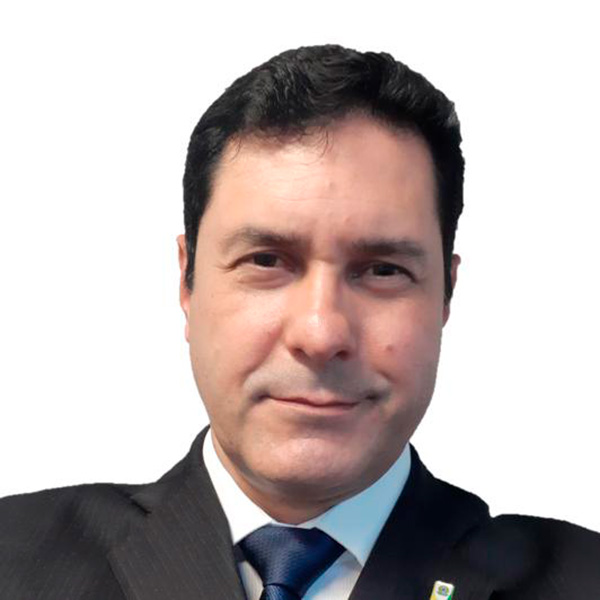
Director of the National Data Protection Authority – ANPD. He has a degree in Administration from UNICEUB, a master's degree in Military Applications from EsAO and a postgraduate degree in Project Management from UNINTER, in Information Security Management from IESB and in Cyber Crimes from UNISUL. He has taken several courses, in national and international institutions, on personal data protection, where he has an EXIN certificate. He is a member of the International Association of Privacy Professionals (IAPP). He worked extensively in the Presidency of the Republic on topics within his specialty, such as personal data protection, information security, cyber security, risk management, management of organizational processes and the development of public policies. He was General Coordinator of the Government Cyber Incident Treatment and Response Center and Director of the Information Security Department of the Institutional Security Office of the Presidency of the Republic."
Miriam Wimmer
Director of the National Data Protection Authority - ANPD

Director at the Brazilian Data Protection Authority, ANPD. She holds a PhD degree in Communications and Cultural Policy and a Master’s degree in Public Law. She is a professional civil servant since 2007, with experience in senior positions in different public organizations, such as the national telecommunications regulator, the Ministry of Communications, and the Ministry of Science, Technology, Innovation and Communication. She is also a Professor at the Law School of Instituto Brasiliense de Direito Público – IDP and guest lecturer on digital law and personal data protection at several other educational institutions.
Armando Guio Español
Executive Director at Global Network of Internet & Society Centers
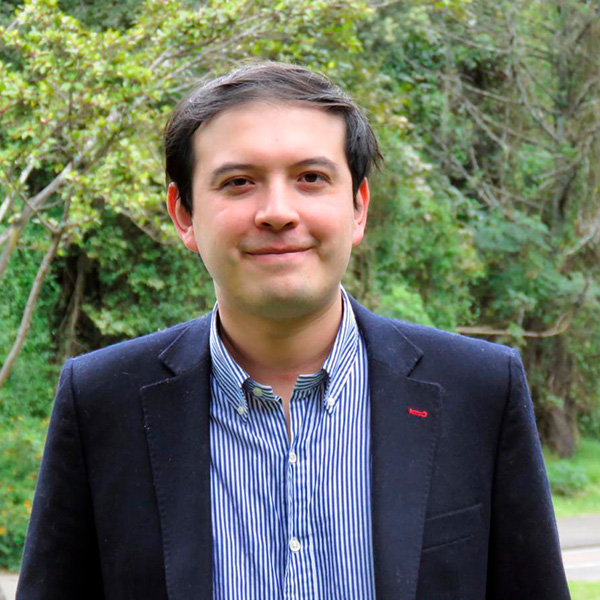
Lawyer who graduated from the Universidad de los Andes (Bogotá, Colombia) in 2014 with an honors degree. He holds a Master of Laws from Harvard Law School (LL.M. '16) and a Master of Public Policy from the University of Oxford (MPP '18). He has advised public and private entities around the world on issues of data protection, AI policy and innovation. He has been actively involved in the design and implementation of AI strategies in several Latin American countries. As a consultant for the CAF Development Bank of Latin America, he led the design of the first Governmental AI Council of Latin America and the Caribbean and assisted the ANPD in launching the society consultation of the AI and Data Protection regulatory sandbox. Armando is also currently involved as an active collaborator of the Network of Centers and in the implementation of its strategic roadmap for the coming years.
Cynthia Piccolo
Executive Director of LAPIN

Lawyer, Bachelor of Laws from PUC-Campinas (Brazil) and LL.M. in Public International Law from Leiden University (Netherlands). Director of the Laboratory of Public Policy and Internet (LAPIN), being responsible for the areas of public policy and research. She is also an expert in Privacy and Data Protection and has experience in corporate departments in Brazil and abroad.
Camila Achutti
Founder of Mastertech

Global reference in the fight for more women in technology. She won the 2015 Women of Vision award, being the first Latina student to receive such an honor and is listed by Forbes as 30Under30 in Technology and Education. The founder of the blog “Mulheres na Computação”, she spoke at a TEDx in a football stadium and obviously Brazil teaching more than 15,000 young people to create applications from the Amazon to communities in Rio de Janeiro. She is CTO and founder of Mastertech, a 21st century skills education platform, Facebook's official partner at Estação Hack. She is a Computer Scientist by Heart and Training at IME-USP, where she also completed her master's degree. Engineering Professor at Insper in the subjects of Web Technologies and Software Design. She has worked with large companies such as Google, Intel, Accenture, Itaú and Leroy Merlin.
Nathalia Lobo
Project Manager – Digital Rights Secretariat
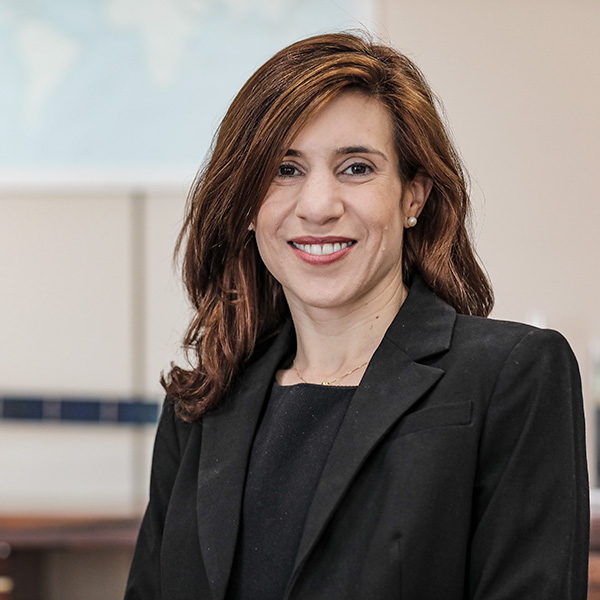
Nathalia Lobo has had over 19 years of career in telecommunications and public policy. She is graduated in Economics and holds a PhD at the University of Brasilia in the same field. She is a civil servant of the National Telecommunications Agency (Anatel) since 2005, and occupied relevant positions, such as Advisor of the Chairman and of the Board of Directors. In the Executive branch, she has performed as Telecommunications General Coordinator of the Secretary of Infrastructure Development in the Ministry of Economy, and has lead the Department of Sectoral Policies and the Telecommunications Secretariat in the Ministry of Communications between 2020 to 2024. She is currently a Project Manager at the Digital Rights Secretariat in the Ministry of Justice and Public Security.
Pedro Martins
Master in Law from the Federal University of Minas Gerais

Master in Law from the Federal University of Minas Gerais, in which he developed research with CAPES scholarship. He develops research in the area of personal data protection and profiling and is the author of the book "Profiling in the General Data Protection Law: The free development of personality in the face of algorithmic governmentality." Researcher of the research group Persona and Academic Coordinator of Data Privacy Brazil.
Thiago Tavares
Founder and president of SaferNet Brasil
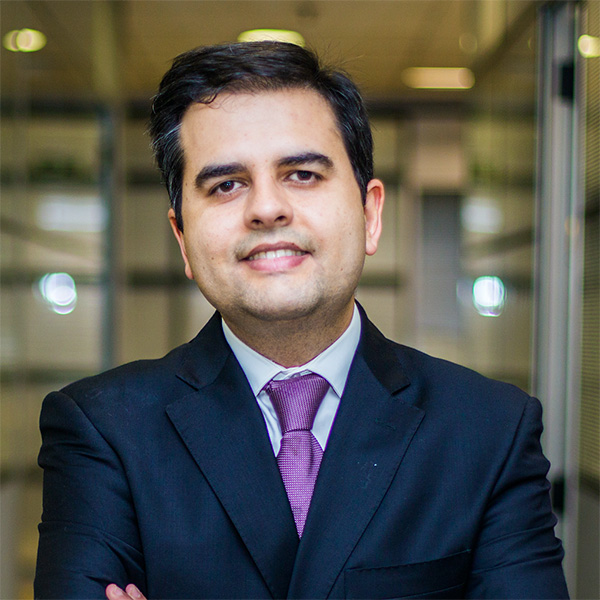
Founder and president of SaferNet Brasil, where he supervises structuring projects in the area of digital citizenship, information integrity and media education for teenagers and young people. He was a member of the Internet Steering Committee (CGI.br) between 2014 and 2020 and a member of the advisory council on Internet and Elections of the TSE between 2017 and 2019. At the international level, he has actively participated, since 2006, in the main policy formulation forums digital technologies, such as the United Nations IGF, ICANN, Internet & Jurisdiction Policy Network and some conferences and processes within the scope of UNESCO, UNICEF, ITU and UNODC.
Eliana Cardoso
Interim Director of the Department of Science, Technology and Digital Innovation of the Secretariat of Entrepreneurship and Innovation at MCTI
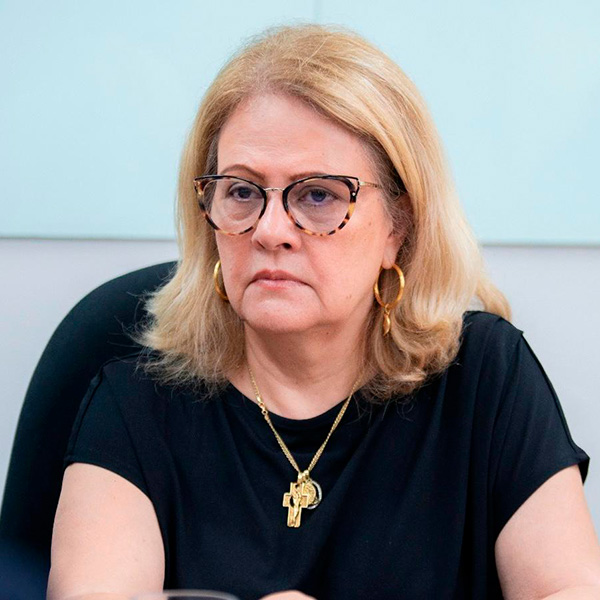
Business Administrator, with specialization in Technological Management from JUSE – Union of Japanese Scientists and Engineers – Tokyo, Japan; PennState University – Pennsylvania, USA and Executive Program at Singularity University in Santa Clara, California, USA;
At MCTI, she coordinates the activities of the Brazilian Strategy for Digital Transformation – E.Digital and is responsible for the Governance Committee of the Brazilian Artificial Intelligence Strategy – EBIA;
Participates, as representative of the MCTI in the priority on Artificial Intelligence of the Digital Economy Group of the Presidency of Brazil of the G20;
Coordinates actions with the business, government and academic sectors to build common agendas to promote digital transformation in Brazil.
Luanna Roncaratti
Deputy Secretary of Digital Government
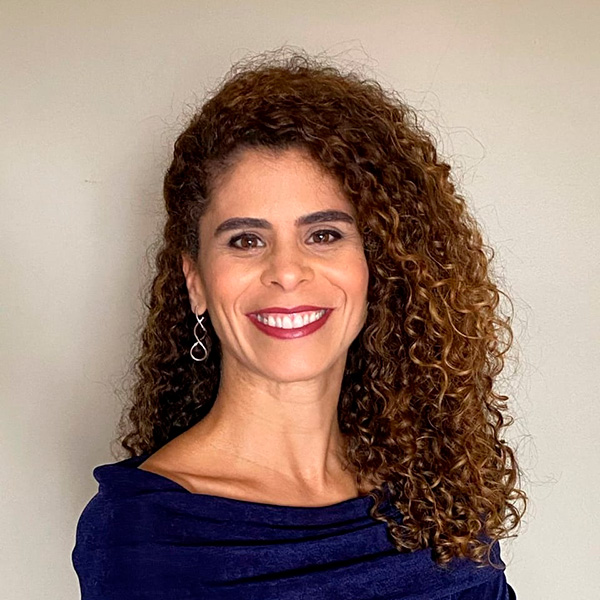
PhD in Political Science from the University of Brasília and Specialist in Public Policies and Government Management since 2006, she has been working in the innovation and digital technologies sector. She is working at the Digital Government Secretariat of the Ministry of Management and Innovation in Public Services, acting as Deputy Secretary. In 2020, she won the Public Spirit Award, in the Digital Government category.
Guilherme Canela
Head of the Freedom of Expression and Safety of Journalists section at UNESCO
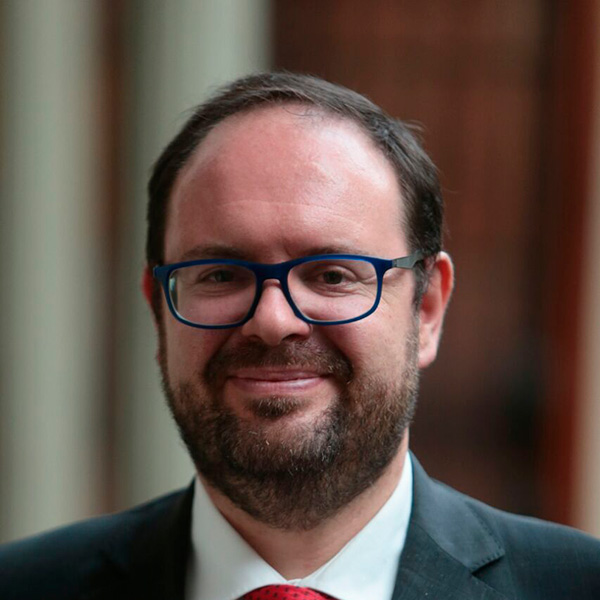
Guilherme Canela holds the position of chief of the section of Freedom of Expression and Safety of Journalists at UNESCO headquarters in Paris. For 8 years, he held the position of Communication and Information Regional Adviser for Latin America and the Caribbean at UNESCO Montevideo Office. During those years, he performed as Regional Coordinator of the UNESCO Initiative for the Promotion of Democracy and Freedom of Expression in judicial systems in Latin America. He was also the Secretary of the Regional Committee of the UNESCO Memory of the World Programme for Latin America and the Caribbean, and focal point of the Organization for issues related to the safety of journalists. He has a B.A. in International Relations from the University of Brasília (UNB) and a Master’s Degree on Political Science from the University of São Paulo (USP).
João Brant
Secretary of the Digital Policy Secretariat
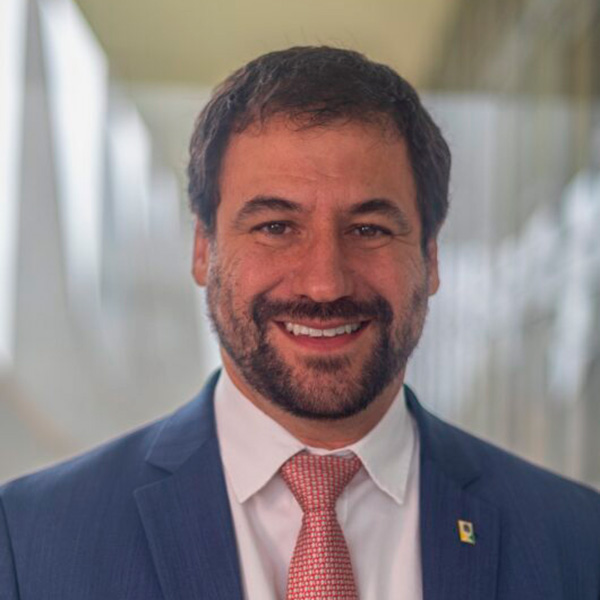
PhD in Political Science from the University of São Paulo (2018). Master's degree in Regulation and communication policies from the London School of Economics (2006) and degree in Social Communication with specialization in Radio and TV from the University of São Paulo (2001). He was Executive Secretary of the Ministry of Culture from 2015 to 2016 and special advisor at the Municipal Secretariat of Culture in São Paulo in 2013 and 2014. He worked for 10 years in civil society organizations, on topics such as freedom of expression, telecommunications infrastructure and Internet rights. He was among the founders of Intervozes, an NGO that works to promote communication rights, where he was executive coordinator for six years. Brant has consulted for UNESCO, Ford Foundation and Global Partners, among other institutions, and currently works as a researcher and consultant in communication, Internet and culture policies. He is director of the Instituto Cultura e Democracia and coordinator of the Desinformante project. He has given hundreds of lectures on communication and cultural policy in Brazil and abroad, including public hearings in Congress. He is co-author of "Digital Communication and the Construction of Commons" and has published other texts in books on communication and cultural policy.
Daniel Cavalcanti
Coordinator for Digital and Telecommunications Policy, at the Ministry of Communications

Daniel B. Cavalcanti is a career public servant, currently the Coordinator for Digital and Telecommunications Policy, at the Ministry of Communications.
In his current position, he represents Brazil at several international fora on the digital economy, including the G20 Digital Economy Working Group, the OECD Digital Policy Committee, the BRICS ICT Working Group, the UN ECLAC Digital Agenda for Latin America and the Caribbean, and the Mercosur Digital Agenda Group.
Mr. Cavalcanti holds M.Sc. in Electrical Engineering from the University of Waterloo, Canada.
Mariagrazia Squicciarini
Chief of Executive Office and Director a.i. of the Division for Research, Ethics and Inclusion at the Social and Human Sciences Sector of the UNESCO
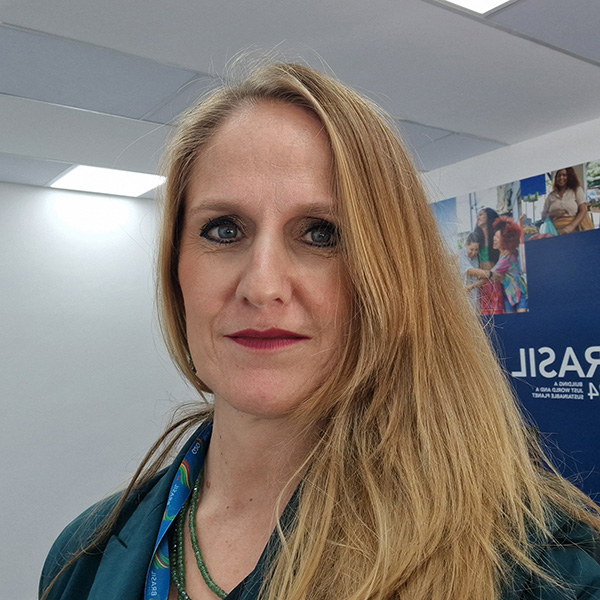
Mariagrazia Squicciarini is Chief of Executive Office and Director a.i. of the Division for Research, Ethics and Inclusion at the Social and Human Sciences Sector (SHS) of the United Nations Educational, Scientific and Cultural Organization (UNESCO).
At UNESCO, Mariagrazia supports SHS’ Assistant Director General, helping the Sector deliver on its mandate, and acts as SHS’ focal point for the G7 and G20. She further leads research and policy-relevant work related to the ethics of science and new technologies - in particular, of Artificial Intelligence and neurotechnology-; youth policy; inclusion, antiracism and gender.
In the past, she has led and contributed policy relevant analysis related to the changing determinants of growth and productivity; the economics of Intellectual Property Rights (IPR); knowledge-based capital; global value chains; the digital transformation and AI; job and skill dynamics; and the digital gender divide.
Mariagrazia holds a Ph.D. in Economics from the University of Essex (UK). Before joining UNESCO, Mariagrazia worked for more than ten years at the OECD Directorate for Science Technology and Innovation as Senior Economist – Head of Unit. Prior to joining the OECD, she had a number of appointments, including at VTT Technical Research Centre of Finland (FI), the University of Essex (UK) and the European Commission-Joint Research Centre (IPTS, ES).
She has published extensively and has been acting as a reviewer for international peer-review journals and governments.
Jeanette Morwane
Chief Director: ICT Innovation Programme at the Department of Communications and Digital Technologies
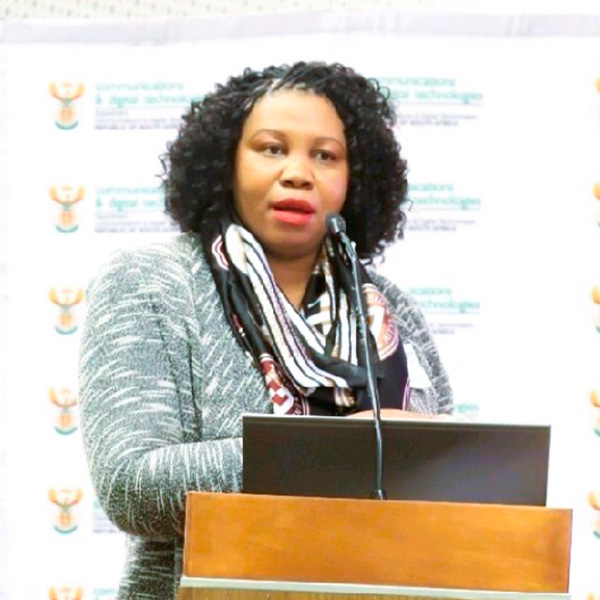
Jeanette Morwane is currently the Chief Director: ICT Innovation Programme at the Department of Communications and Digital Technologies (DCDT) and also served on the board of SITA as a government representative. She is an ICT and innovation executive with more than 16 years’ experience at operational, tactical and strategic management levels. Accumulated substantial experience, knowledge and understanding of ICT governance, technology innovation, innovations systems development, policy formulation, strategic planning, programme management and human capital development. She was the Head of the Secretariat for the Presidential Commission on the Fourth Industrial Revolution. The Commission was established and coordinated by the DCDT on behalf of President Cyril Ramaphosa. She previously worked as Director of ICT R&D and Services Industry at the Department of Science and Innovation (DSI). She started her career at The Innovation Hub, Africa’s first internationally accredited Science Park as project officer and Activator Programme Manager. She holds a Master of Business Administration (MBA) from University of South Africa (School of Business Leadership) and Bachelor of Arts in Information Science from University of Pretoria.
Mr. Rajesh Kumar
Director in Ministry of Electronics and Information Technology (MeitY), Government of India
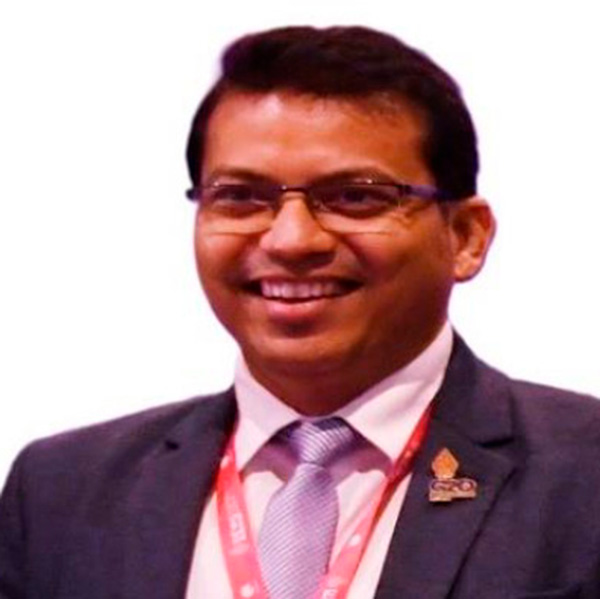
Mr. Rajesh Kumar is currently serving as Director in Ministry of Electronicsand Information Technology (MeitY), Government of India and responsible for allinternational cooperation matters related to G20, G7, WTO, BRICS, SCO, ASEAN,World Bank, ADB etc., bilateral engagements, international negotiations, Free TradeAgreements (FTAs), international ICT Projects, E-Commerce issues; and promotion ofIndian IT/Software and Electronics Industry at international forums. He has alsohandled the Preferential Market Access (PMA) Policy and investment promotion inElectronics System Design & Manufacturing (ESDM) sector where he wasinstrumental in the promotion and monitoring of PMA policy in various CentralMinistries/ Departments and organizations to promote domestically manufacturedelectronic products. He has represented the country in various international forumsincluding G20, G7, RCEP, BRICS, SCO, FTAs as lead and co-negotiator on DigitalEconomy and Digital Trade matters to protect and safeguard India’s interests andpromote India’s prowess in the ICT sector.
Fernanda K. Martins
Director of Research and Development at InternetLab
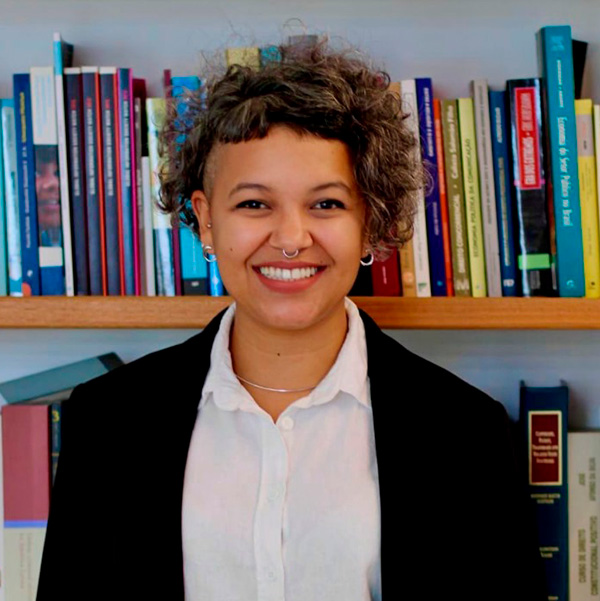
Director of Research and Development at InternetLab, she is an anthropologist with a doctorate in Social Sciences from Unicamp, a master's degree in Anthropology and a degree in Social Sciences from the University of São Paulo. In addition to training in Pedagogy at Faculdade Sumaré. Her career includes scholarships from CNPq and FAPESP, and contributions to consultancies for Projeto Guri, Plan International and Unicef. With a solid background in education, she worked as a teacher in projects focused on issues of race, ethnicity and gender inequalities for children, teenagers and adults. At InternetLab, she supervises research projects, represents the institution and innovates methodologies, ensuring interdisciplinarity and qualifying engagement in its substantial programmatic innovation effort.
Andriei Gutierrez
Director of Government Relations and Public Policy at Kyndryl

Andriei is a business leader in the technology sector with experience in boards of directors, government relations, innovation, regulation, governance, and responsible adoption of Artificial Intelligence and new technologies. Since 2021, he has taken on the mission of structuring and leading the Government Relations and Public Policy area for Kyndryl in Latin America, a global leader in information technology infrastructure services. He is also member of B20 Digital Transformation Task Force.
For about 9 years, Andriei has been one of the main voices of the Brazilian private sector in debates on new technologies, regulation, and accountability. He was one of the pioneers of the business sector in the debate on the creation of the LGPD, being one of the founders and first Executive Secretary of the LGPD Business Forum. He was an executive at IBM between 2015 and 2021. He is currently President of the Digital Economy and Innovation Council of Fecomercio São Paulo and Vice-President of the Brazilian Association of Software Companies (ABES). Andriei has a PhD in Political Science (Unicamp/Brazil) and in Sociology (Université de Provence/France). He is married and father of two young girls.
Program
WEDNESDAY, JUNE 12TH
14:30 - 14:50
WELCOME
The side event will begin with an opening address by the Director of ANPD, Arthur Sabbat, setting the stage for discussions on the Digital Economy and its interplay with Data Protection.
INTRODUCTIONS
The introductory session will highlight the importance of discussing data protection and its relationship with the thematic areas of the Digital Economy Working Group (DEWG). Therefore, two topics will be used to explore how data protection connects with the thematic areas: (i) media and information literacy, which is a relevant element to the debate of meaningful connectivity and information integrity; (ii) the fostering on data governance practices in the public and private sector through the implementation of experimental regulation initiatives, such as privacy regulatory sandboxes, innovation hubs and data trusts. This second topic connects with the digital government and artificial intelligence key themes.
14:50 às 15:50
PANEL 1. MEDIA AND INFORMATION LITERACY & DATA PROTECTION
This panel addresses the importance of media and information literacy as a fundamental element in the debate on meaningful and universal connectivity and information integrity, exploring its intrinsic relationship with data protection. MIL equips individuals with essential skills to access, analyze, evaluate, and produce content in various forms of media, promoting a safer, more informed, and responsible online participation while simultaneously strengthening personal data protection. By better understanding information, media and digital content, individuals become more capable of identifying potentially invasive data collection practices, effectively using privacy settings, and making informed decisions about sharing their personal information online. This level of awareness is crucial to ensure a significant and safe online experience, aligned with two priority issues of the G20 Digital Economy Working Group for 2024. The session will be followed by a moderated discussion.
Keynote presentation: TBD
Moderator: Miriam Wimmer - ANPD
15:50 às 16:10
COFFEE BREAK
16:10 às 17:10
PANEL 2. EXPERIMENTAL REGULATION AND DATA GOVERNANCE
This panel will engage in a debate on the governance of data protection through experimental regulation, focusing on digital government and artificial intelligence as two key priority areas of the G20 Digital Economy Working Group for 2024. The session will include expert insights and perspectives, followed by a moderated discussion aimed at exploring innovative regulatory approaches. Participants will delve into how experimental regulation can address the challenges and opportunities presented by rapid technological advancements, ensuring that data protection frameworks remain effective and responsive in the digital age. The dialogue will also highlight international best practices fostering a collaborative approach to shaping the future of digital governance and AI regulation.
Keynote Presentation: Armando Guío
Moderator: Nathalia Lobo, Project Manager – Digital Rights Secretariat
17:10 às 17:30
CLOSING REMARKS AND NEXT STEPS
The closing panel will provide a comprehensive summary of the key takeaways from the event, emphasizing the critical insights and strategies discussed throughout the panels. It will highlight the next steps for implementing the discussed measures and outline potential future directions for the digital economy. This panel will also offer an opportunity to reflect on the evolving challenges and opportunities within the digital landscape, particularly focusing on data protection, media and information literacy, experimental regulation and data governance. The discussion will explore potential convergent pathways, seeking to identify collaborative approaches for stakeholders worldwide to promote a secure, inclusive, and prosperous digital economy.